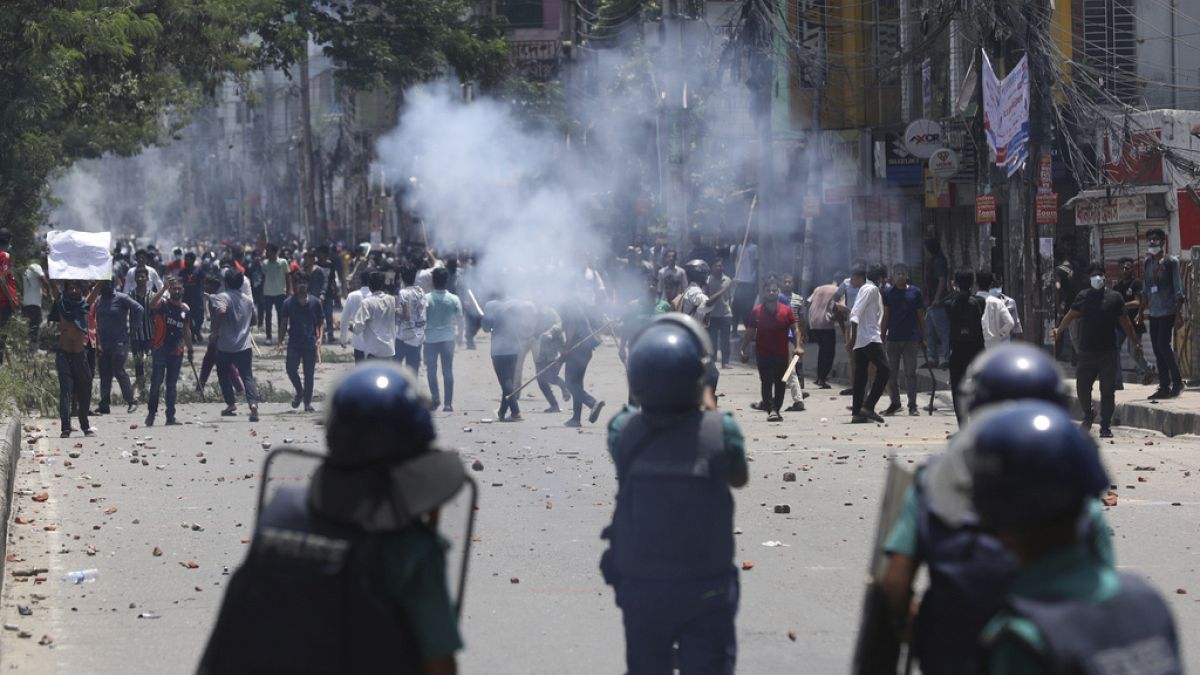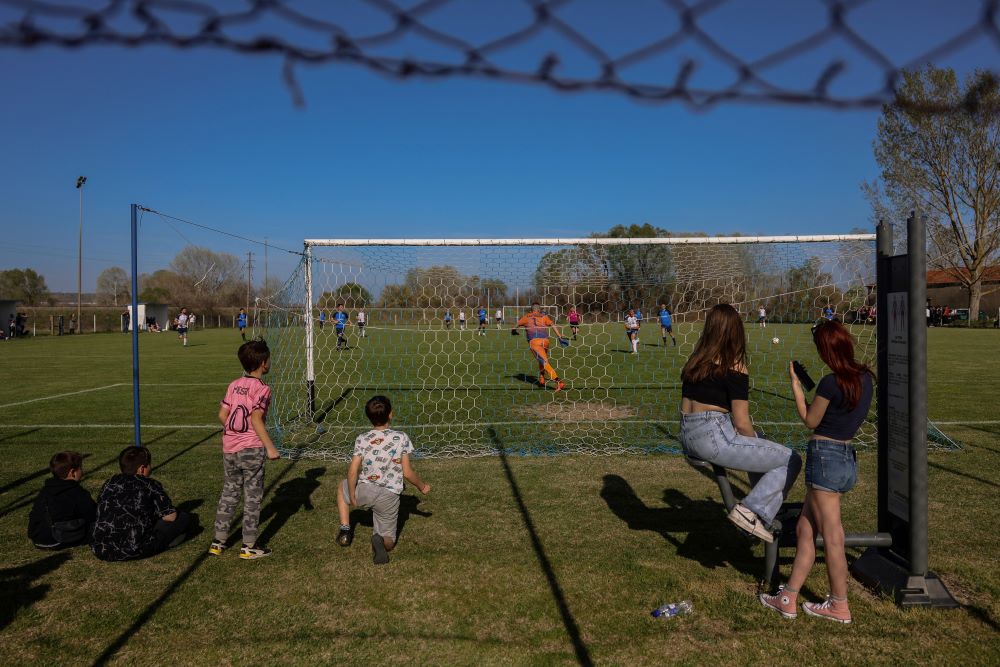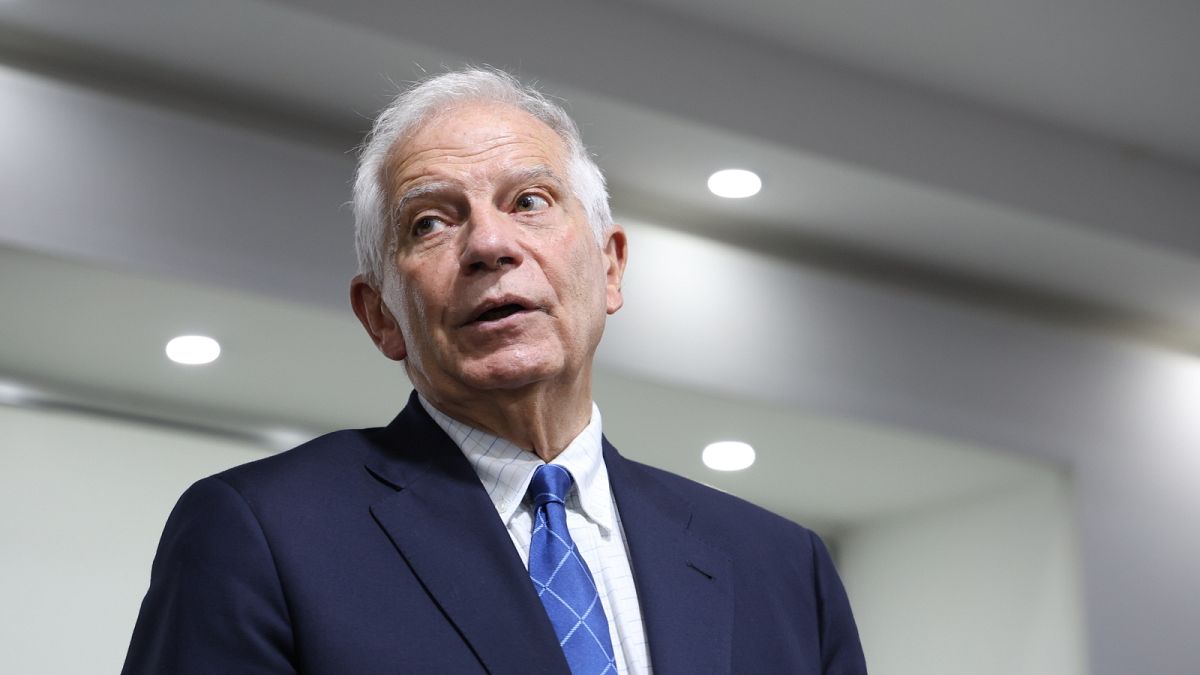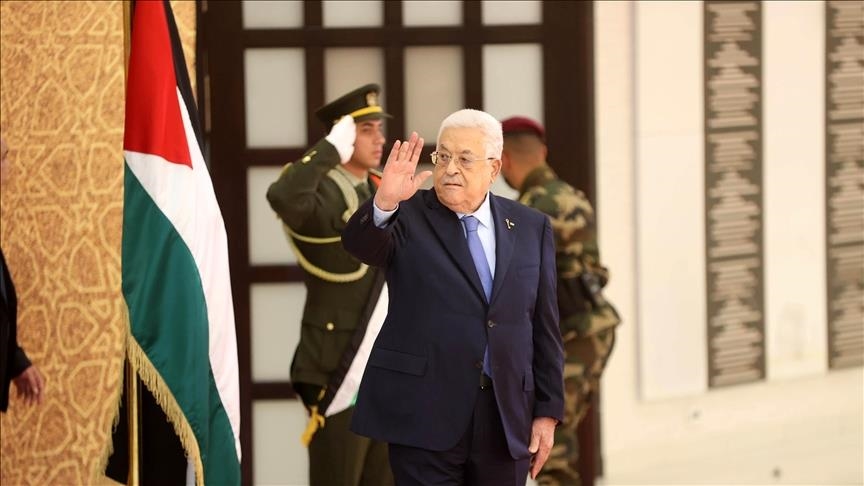Internet and mobile services were cut off after days of deadly clashes over the allocation of government jobs.
Police and security officials in Bangladesh fired bullets and tear gas at protesters and banned all gatherings in the capital on Friday, as internet and mobile services were cut off after days of deadly clashes over the allocation of government jobs.
The protests, which began weeks ago but escalated sharply on Monday, represent the biggest challenge to Prime Minister Sheikh Hasina since she won a fourth consecutive term in office after elections in January. Main opposition groups boycotted those polls.
Somoy TR, a local television channel, reported that four more people died in the latest clashes.
This comes a day after the bloodiest day of demonstrations to date when 22 people were killed, according to local media, as protesting students attempted to impose a “complete shutdown” on the country.
Authorities could not be reached immediately to confirm figures for the deaths.
The chaos has highlighted cracks in Bangladesh’s governance and economy and the frustration of young graduates who face a lack of good jobs.
The government has deployed police and paramilitary forces across the capital to lock down campuses and break up protests. On Wednesday, universities including the country's largest suspended classes and closed dormitories, and on Friday Dhaka police said they were banning all gatherings and demonstrations in the capital.
An Associated Press reporter saw border guard officials fire at a crowd of more than 1,000 protesters who had gathered outside the head office of state-run Bangladesh Television, which was attacked and set on fire by protesters the previous day.
The border guards shot at the right crowd with rifles and sound grenades, while police officers fired tear gas and rubber bullets. Bullets littered the streets, which were also marked by smears of blood.
A news producer and reporter at Bangladesh Television on Thursday told the AP that protesters had broken through the main gate and set fire to vehicles and the reception area. They spoke on condition of anonymity for fear of reprisals.
“I escaped by leaping over the wall but some of my colleagues got stuck inside. The attackers entered the building and set furniture on fire,” the producer said by phone.
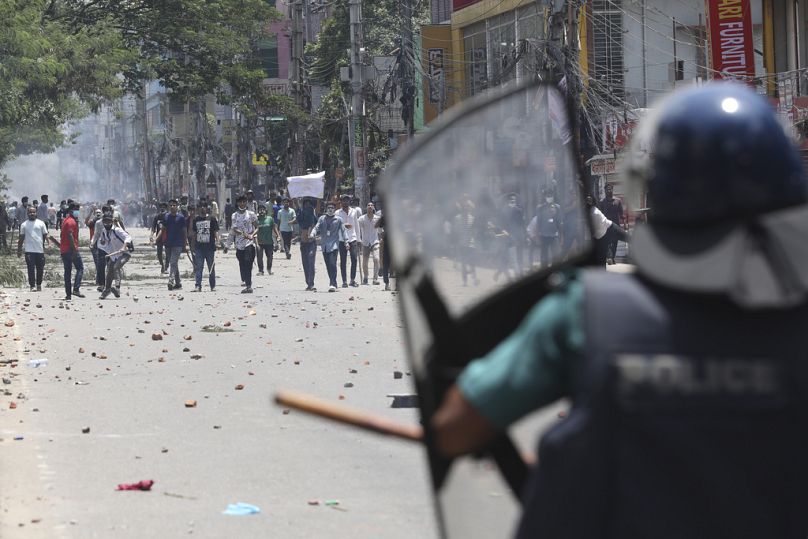
Students clash with riot police during a protest against a quota system for government jobs, in Dhaka, Bangladesh onThursdayRajib Dhar/The AP
Internet services and mobile data were widely disrupted on Thursday night and remained down on Friday in the capital, Dhaka. Social media platforms like Facebook and WhatsApp were also not loading. It coincided with a widespread internet outage on Friday that disrupted flights, banks, media outlets and companies around the world, but the disruptions in Bangladesh were substantially greater than seen elsewhere.
A statement from the country’s Telecommunication Regulatory Commission said they were unable to ensure service after their data centre was attacked on Thursday by demonstrators, who set fire to some equipment. The Associated Press has not been able to independently verify this.
Student protesters said they will extend their calls to impose a shutdown on Friday as well, and urged mosques across the country to hold funeral prayers for those who have been killed. Major universities have said they will close their doors until tensions ease.
The protesters are demanding an end to a quota system that reserves up to 30% of government jobs for relatives of veterans who fought in Bangladesh’s war of independence in 1971 against Pakistan.
They argue the system is discriminatory and benefits supporters of Prime Minister Sheikh Hasina, whose Awami League party led the independence movement, and they want it replaced with a merit-based system.
But Hasina has defended the quota system, saying that veterans deserve the highest respect for their contributions to the war regardless of their political affiliation.
The Bangladeshi leader is credited for bringing stable growth to Bangladesh, but rising inflation — thanks in part to the global upheaval sparked by the war in Ukraine — has triggered labor unrest and dissatisfaction with the government.
Even though job opportunities have grown in some parts of the private sector, many people prefer government jobs because they are seen as more stable and lucrative. But there aren’t enough to go around — each year, some 400,000 graduates compete for around 3,000 jobs in the civil service exam.
“What is unfolding in Bangladesh is deeply unsettling for a generation that only asked for a fair opportunity in public service recruitment. That a peaceful protest against a state policy would slip into the peak of lawlessness shows the government’s lack of farsightedness and inefficient policy governance,” said Saad Hammadi, policy and advocacy manager at the Canada-based Balsillie School of International Affairs who has advocated for freedom of speech in the country.
“The internet shutdown makes matters worse. Local news sites are inaccessible, and people in the country are left incommunicado with the rest of the world all in the pretext of conducting sweeping operations by the state that have often resulted in serious human rights violations,” he added in an email.
Bangladesh has previously shut down internet services in areas affected by protests, using it as a measure to suppress dissent by opposition parties. Internet watchdog Access Now said it recorded three shutdowns in the country in 2023 - all of which overlapped with opposition rallies and were limited in scope to one city or district. That came after six shutdowns in 2022.
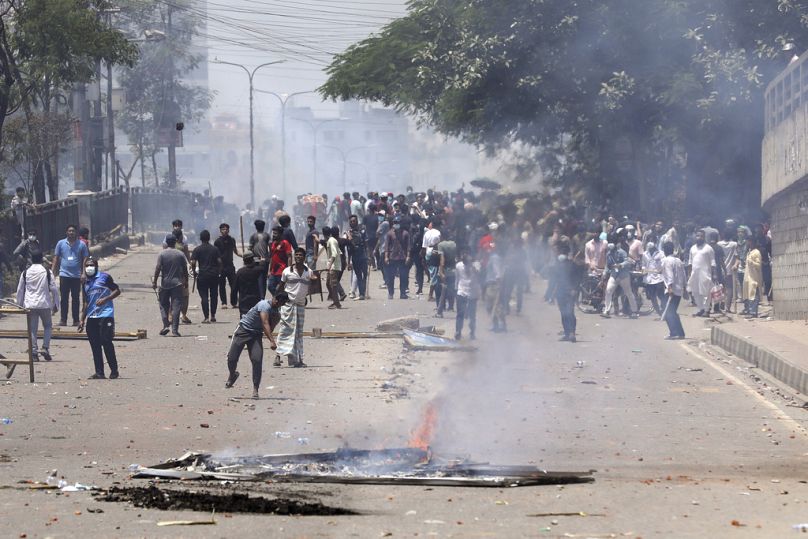
Students clash with riot police during a protest against a quota system for government jobs, in Dhaka, Bangladesh onThursdayRajib Dhar/The AP
CIVICUS, a non-profit that tracks civic freedoms around the world, last year downgraded Bangladesh to “closed,” the worst rating that it could assign, along with China and Venezuela, following a crackdown on the country’s opposition members and supporters ahead of its national election.
The main opposition Bangladesh Nationalist Party has backed the protesting students and vowed to organise its own demonstrations, and many of their supporters have joined in the students' demonstrations. On Friday, police fired tear gas at a few hundred BNP supporters, and arrested senior BNP leader Ruhul Kabir Rizvi.
Hasina's government has accused the BNP of stoking the violence, with authorities raiding the opposition party's headquarters earlier this week and arresting activists from the party's student wing.
The Awami League and the BNP have often accused each other of fuelling political chaos and violence, most recently ahead of the country's national election, which was marred by a crackdown on several opposition figures while Hasina's government accused the party of attempting to disrupt the vote.
Hasina’s government had earlier halted the job quotas following mass student protests in 2018, but last month, Bangladesh’s High Court nullified that decision and reinstated the quotas after relatives of the 1971 veterans filed petitions, triggering the latest demonstrations.
The Supreme Court has suspended that ruling pending an appeal hearing, and said in a statement it will take up the issue on Sunday.
On Wednesday, Hasina urged protesters in a televised address to “wait with patience” for the court verdict. “I believe our students will get justice from the apex court. They will not be disappointed.”



 I
I Students protest against quotas in government jobs at Dhaka University on July 17. | AFP
Students protest against quotas in government jobs at Dhaka University on July 17. | AFP




